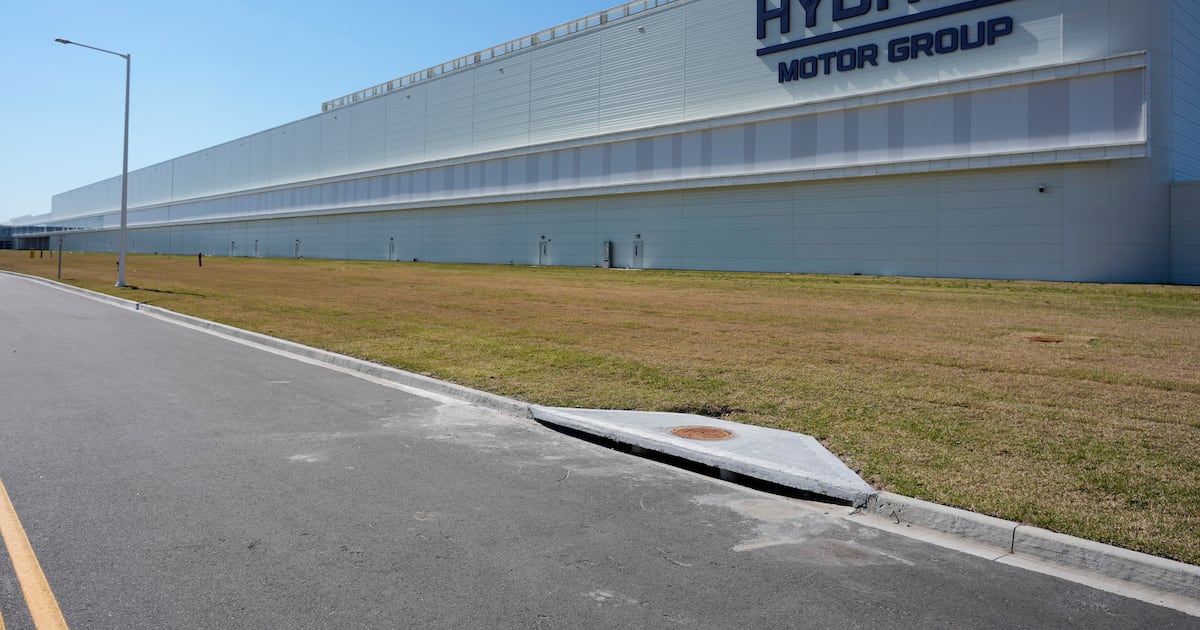Federal immigration agents Thursday conducted an operation at the Hyundai Motor Group factory site near Savannah.
Why it matters
- The raid highlights ongoing scrutiny of employment practices within major corporations and their compliance with immigration laws.
- The operation raises concerns over the potential impact on the local economy, particularly in manufacturing sectors reliant on immigrant labor.
- This event signifies a broader trend of increased enforcement actions by federal agencies in various industries across the United States.
In a significant move, federal immigration enforcement agents executed a raid on Thursday at the Hyundai Motor Group factory site located near Savannah, Georgia. This operation is part of a growing trend where federal authorities are intensifying their scrutiny of businesses to ensure adherence to immigration regulations, particularly concerning the employment of undocumented workers.
The Hyundai facility, known as the Metaplant, is a key player in the automotive industry, particularly as the company expands its footprint in electric vehicle production. The raid is bound to have ripple effects not only within the plant but throughout the local community, which has increasingly come to rely on the manufacturing sector for economic stability and job creation.
Sources indicate that the operation involved a coordinated effort by U.S. Immigration and Customs Enforcement (ICE) agents, who descended on the site to investigate hiring practices at the plant. While specific details regarding the number of agents involved or the exact nature of the findings have not been disclosed, the operation underscores the ongoing challenges faced by employers in ensuring compliance with complex immigration laws.
Hyundai has been expanding its operations in the United States, with the Savannah facility expected to play a crucial role in the company’s ambitious plans to ramp up electric vehicle production. The presence of federal agents at such a pivotal site raises questions about the company’s hiring practices and whether they have adequately adhered to federal regulations.
Local officials and community leaders are expressing concern about the potential implications of the raid. Many fear that increased enforcement actions could lead to a chilling effect on the local workforce, particularly in an area where manufacturing jobs are critical to economic health. The community's reliance on immigrant labor, often crucial in manufacturing settings, may be jeopardized as businesses reassess their hiring strategies in light of potential federal scrutiny.
The immigration operation is part of a broader trend observed nationwide, where federal authorities are ramping up enforcement measures across various industries. This shift has raised alarms among advocates for immigrant rights, who argue that such actions can create a climate of fear among workers and disrupt local economies heavily reliant on immigrant labor.
Industry experts suggest that companies may need to review their hiring processes and ensure that they are compliant with all applicable laws to avoid potential penalties or disruptions to their operations. The scrutiny from federal agencies serves as a reminder that businesses must remain vigilant in their employment practices, especially in times of heightened enforcement.
As the automotive industry navigates the transition toward electrification, the implications of such raids could extend beyond immediate operational challenges. The need for a stable and reliable workforce is paramount for companies like Hyundai as they look to innovate and expand in a competitive landscape. How the company responds to this challenge and the potential fallout from the raid will be closely monitored by industry stakeholders.
In the wake of the raid, Hyundai has not yet released an official statement regarding the operation or its implications for their workforce. However, given the scale of the Metaplant and its importance to the company’s U.S. operations, it is likely that any significant disruptions could have far-reaching consequences.
As this story continues to develop, it will be essential to keep an eye on how federal immigration policy evolves and its impact on the manufacturing sector, particularly in regions like Georgia, which are increasingly becoming hubs for automotive production and innovation. The ongoing dialogue surrounding immigration enforcement and labor rights will be central to shaping the future of industries that rely heavily on a diverse workforce.











